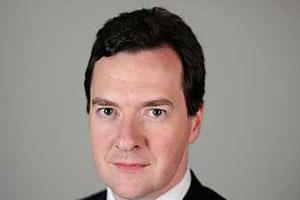In his speech, Mr Osborne also outlined an increase in VAT from 17.5% to 20%, to take effect from January 4 2011 as well as confirming that the standard rate of landfill tax will increase by £8 a tonne until at least 2014 and will not fall below £80 a tonne until 2020.
The exact implications for local government of the government's spending cuts are also expected to emerge at that point – although Mr Osborne said he would work with local authorities to ensure a council tax freeze for 2011/12 – a move that could potentially impact on the funding of frontline services.
The Budget document explains that the exact detail as to how government will compensate councils that freeze or reduce their council will come in “due course”.
Mr Osborne also revealed that the coalition government planned to pursue plans which were a feature of all three main political parties' manifestoes in the lead-up to this year's General Election, to establish a Green Investment Bank to support clean energy and green technologies.
Defra
In terms of spending by all government departments, including Defra and DECC, Mr Osborne claimed that, while the previous Labour government had said it would cut departmental spending by £44 billion a year in total by 2014/15 – equivalent to an average reduction of 20% – it had never been “said” or any actual cuts identified.
And, he said that because the UK's budget deficit was “worse than we were told”, an additional £17 billion of departmental spending cuts would have to be made by 2014/15.
With the NHS and international aid protected, he said: “Once these are taken into account, the Budget figures imply that other departments will face an average real cut of around 25% over four years.”
With Defra's resource efficiency body the Waste and Resources Action Programme already facing a 5% budget cut in 2010/11 as the department tries to make £162 million in savings (see letsrecycle.com story), this announcement raises the potential for both its budget, and that available for Defra's wider waste and recycling work to be cut further.
Green Investment Bank
Outlining the timetable for establishing a Green Investment Bank, the Budget explains that: “Following the Spending Review, the Government will put forward detailed proposals on the creation of a Green Investment Bank to help the UK meet the low-carbon investment challenge.
“The Government is considering a wide range of options for the scope and structure of the Green Investment Bank. The options will be evaluated for effectiveness, fiscal affordability and transparency,” it adds.
In terms of infrastructure as a whole, the Budget confirms the establishment of the Infrastructure UK body to help drive private sector investment in infrastructure, with plans a National Infrastructure Plan, setting out goals for UK infrastructure, to be published in the autumn.
“This will include priority public and private sector investments and proposals for delivering and supporting investment on a cross-sector basis,” it explains.
Landfill tax
The announcements on landfill tax confirm commitments made the previous Labour Chancellor Alistair Darling in his March 2010 budget, with the tax increasing at £8 a tonne every year until 2014, and not falling below the level it will reach then, £80 a tonne, until 2010 (see letsrecycle.com story).
It also confirms that the new qualifying criteria for lower rated wastes will be legislated in a Finance Bill to be introduced in the autumn, with the aim of coming into affect in April 2011.









Subscribe for free